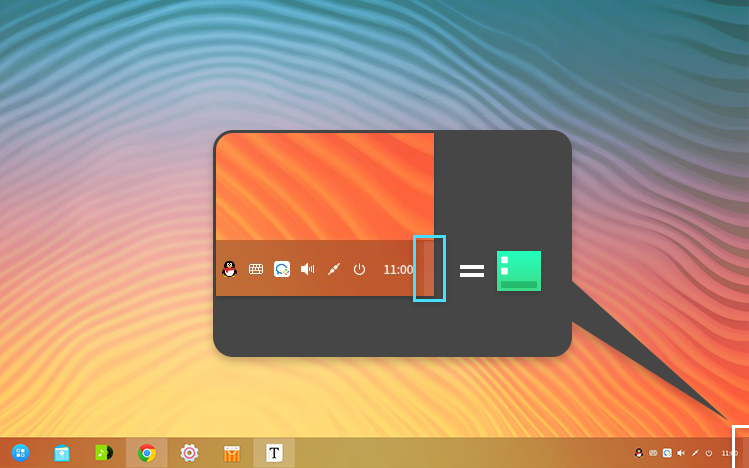Deepin 15.8 - Attractive and Efficient, Excellent User Experience


Deepin is an open source GNU/Linux operating system, based on Linux kernel and desktop applications, supporting laptops, desktops and all-in-ones. deepin preinstalls Deepin Desktop Environment (DDE) and nearly 30 deepin native applications, as well as several applications from the open source community to meet users’ daily learning and work needs. In addition, about a thousand of applications are offered in Deepin Store to meet your more needs. deepin, developed by a professional operating system R&D team and deepin technical community (www.deepin.org), is from the name of deepin technical community - “deepin”, which means deep pursuit and exploration of the life and the future.
Compared with deepin 15.7, the ISO size of deepin 15.8 has been reduced by 200MB. The new release is featured with newly designed control center, dock tray and boot theme, as well as improved deepin native applications, hoping to bring users a more beautiful and efficient experience.
-

- Login or register to post comments
 Printer-friendly version
Printer-friendly version- 3854 reads
 PDF version
PDF version
More in Tux Machines
- Highlights
- Front Page
- Latest Headlines
- Archive
- Recent comments
- All-Time Popular Stories
- Hot Topics
- New Members
digiKam 7.7.0 is released
After three months of active maintenance and another bug triage, the digiKam team is proud to present version 7.7.0 of its open source digital photo manager. See below the list of most important features coming with this release.
|
Dilution and Misuse of the "Linux" Brand
|
Samsung, Red Hat to Work on Linux Drivers for Future Tech
The metaverse is expected to uproot system design as we know it, and Samsung is one of many hardware vendors re-imagining data center infrastructure in preparation for a parallel 3D world.
Samsung is working on new memory technologies that provide faster bandwidth inside hardware for data to travel between CPUs, storage and other computing resources. The company also announced it was partnering with Red Hat to ensure these technologies have Linux compatibility.
|
today's howtos
|









.svg_.png)
 Content (where original) is available under CC-BY-SA, copyrighted by original author/s.
Content (where original) is available under CC-BY-SA, copyrighted by original author/s.

Coverage by Joey Sneddon
Linux Deepin 15.8 Released with Various Neat Improvements
By Fagioli
deepin 15.8 Linux distribution available for download -- replace Windows 10 now!